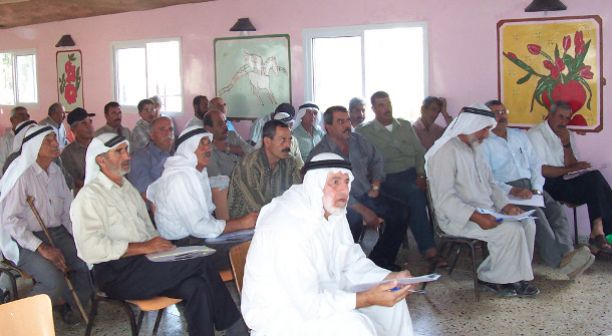
 Trace Your Delicacy
Trace Your Delicacy

 Find Canaan Locally
Find Canaan Locally
ILO Recognizes Canaan/PFTA As World Model
March 30, 2014




ILO recognizes Canaan farmers union as model of rural development for the world
International Labour Organization
The International Labour Organization (ILO) features the Palestine Fair Trade Association (PFTA) as a case study for successful rural development in their 'Learning from Catalyst of Rural Transformation' publication. The ILO was founded in 1919, in the wake of a destructive war, to pursue a vision based n the premise that universal, lasting peace can be established only if it is based on social justice. The ILO became the first specialized agency of the UN in 1946.
The key message in the publication is that the determination and creativity of the indigenous people, especially rural men and women and young people, can overcome numerous challenges and transform rural economies and societies. Eight case studies from around the world are presented for the valuable lessons from their accomplishments as a model for world development and work generation.
EXECUTIVE SUMMARY
The Palestine Fair Trade Association (PFTA) is a union which economically and socially empowers Palestinians farmers, including women producers, through the promotion of fair trade and organic farming, capacity building, and certification. It aims to enable small and marginalized producers to overcome challenges generated by the on-going confilct with Israel, such as difficult access to land and markets, by giving them access to international markets, which individual Palestinian producers would otherwise not be able to access.
History: The Union was created in 2004 by Nasser Abufarha, a Palestinian from a farming family. While pursuing his PhD in cultural anthropology and international development in the United States, he was introduced to fair trade concepts and mechanisms. Upon his return to the occupied Palestinian territories (oPt) for doctoral research, he witnessed the worsening situation of farmers due to the fall of olive oil prices, and decided to set up a fair trade training and certification system to enable famers to access new and more profitable and stable international markets.
The PFTA started with only 15 members, but in less than 10 years it became the largest
fair trade union in the oPt, with over 1,700 small farmers organized into approximately
43 farmers village cooperatives producing olive oil from ancestral trees, and 6 women’s village cooperatives producing other traditional goods, such as couscous and sun-dried tomatoes. In 2009, the union because the first entity in the world to be fair trade-certified for olive oil, and currently over 95 percent of its products are certified organic. In 2011, it sold its products for USD 4.8 million, with USD 4.3 million from olive oil alone, through Canaan Fair Trade, its exclusive exporting partner established in 2004.
How it works: PFTA’s fair trade and organic trainings and certifications aim to improve its members' productivity, working conditions, and the quality of their products, which in turn increases their value and allow them to access lucrative international fair trade and organic markets. By guaranteeing the sales of its members’ products, the union also improves the employment opportunities and working conditions of the wider Palestinian community; producers can make long-term investments on their farms, and over 2,400 seasonal farm labourers receive work for 3 months during the olive harvest, with a PFTA-created minimum wage that is on average 60 per cent higher than the Palestinian one. The social premium (a benefit that the union, the cooperatives and the farmers receive on top of the selling-price), further contributes to the general development of the region as it is often reinvested in community projects, in health care, in education, etc.
Community programs: The union’s empowering work also includes a set of complementary programmes, such as sapling distributions to disadvantaged groups to help them launch production; micro loans to set up fair trade and organic-certified production; and an international olive harvest festival to allow producers and consumers to meet and exchange.


 Subscribe with RSS
Subscribe with RSS
